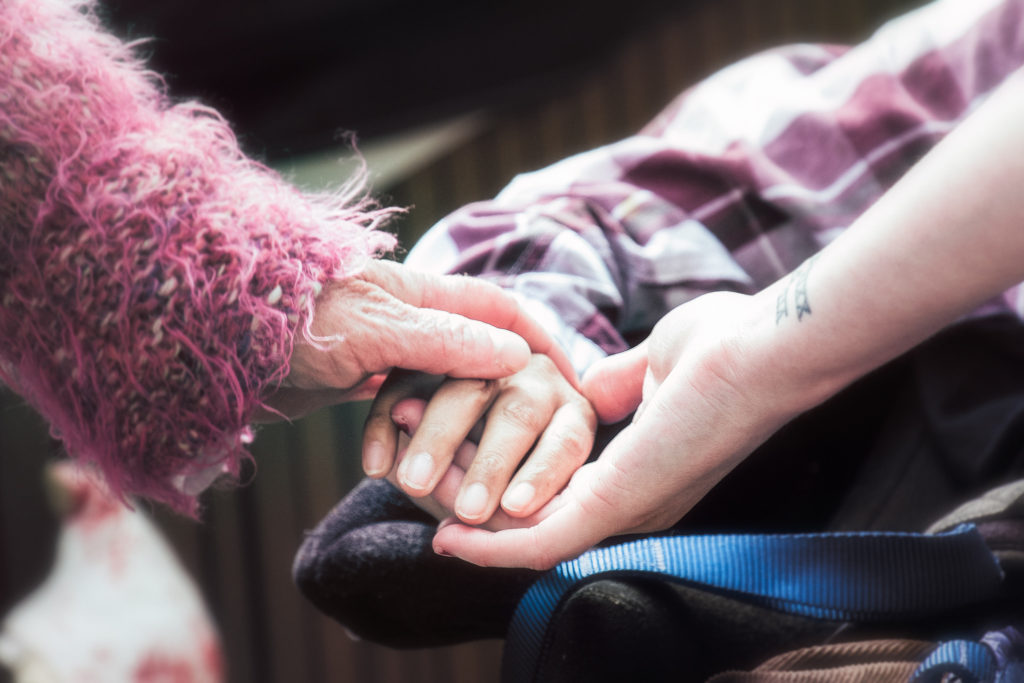New data, published in The Lancet, highlights the importance of peer support in reducing the risk of readmission to an acute crisis unit. Dr. Sonia Johnson, from the Division of Psychiatry, University College London, found that individuals who had peer support while learning self-management techniques and completing a workbook were less likely to be readmitted to acute care than those learning the book and completing the interventions independently.
This research provides important insights toward the goal of preventing readmission, an objective targeted to reduce the heavy use of services and assist individuals in their recovery. In previous research, locating a path toward preventing re-entry has been difficult.
“A scoping review on interventions relevant to mental health crises found no robust evidence on how to prevent repeat crises in people leaving crisis care,” Johnson and her team write.

In a nationwide effort to reduce “acute bed use,” the National Health Service (NHS) developed crisis resolution teams. However, initiatives to implement this model have not corresponded to a promising reduction in service use.
Participants in this study were randomly assigned to either the treatment group or the control group. In the treatment group, participants received “a peer-supported self-management intervention, based on a recovery workbook.” The peer support model was adapted to offer individuals sessions in which peer supporters were trained to provide supportive listening and interventions to instill hope about recovery. Additionally, peer supporters actively encouraged participants to complete the workbook. Alternatively, those participants placed in the control group received the book in the mail and were given the option to complete it independently.
A total of 440 individuals participated. The primary focus was to examine readmission rates. If readmission rates were reduced for those who had received peer support than those who had not, it would serve to demonstrate support for peer intervention as a way to cut readmission. This was this case in this study, which found there to be a significant difference across groups such that peer intervention lowered the risk of readmission.
In discussing the results of these findings, the authors wrote about how their study may address the objective to reduce repeat crises:
“It addresses the need for evidence on how to prevent repeat crises and provides the most robust evidence yet for the effectiveness of any peer-provided intervention in a UK secondary mental health setting.”
Johnson and colleagues conclude with future directions related to their findings:
“Research is needed on how to embed and sustain peer-supported self-management in routine services, and on associated outcomes and staff and service user experiences. Our trial provides support for the wider and more systematic roll-out of practices that already attract considerable support from service planners and from service users themselves.”
****
Johnson, S., Lamb, D., Marston, L., Osborn, D., Mason, O., Henderson, C., … & Sullivan, S. (2018). Peer-supported self-management for people discharged from a mental health crisis team: a randomized controlled trial. The Lancet, 392(10145), 409-418. (Link)















What would reduce chances of readmission even more drastically would be an end to forced psychiatry, and widespread exposure of its bankruptcy as a field of medicine.
Report comment
An excellent point!
Report comment
I won’t be readmitted because I no longer consume! 🙂
As long as I don’t act too weird/creepy in public and freak folks out or call some hotline: Boo hoo! I want to kill myself! I have a plan!
If I did either of the above it’s safe to assume I’d get sucked down the rabbit hole again.
Report comment
I find it interesting that so much new research (which…pretty much validates what people in both the “critical psychiatry” and antipsychiatry camps have been saying, all along) is coming out of the UK. I live in the US, and I think perhaps society (and…the economy…) lean more heavily on the mental health industry here than in the UK, which might explain why a “professional” talked to me about “chemical imbalances” about 1 week ago. My best guess is that its partly the economy and…honestly…something about a damaged, over-extended empire…would drive many of us to some sort of chemical escape. Some go for Vodka, others Vicodin, still others…Valium.
I do hope research like this makes waves in the US. I think it might, but it will probably be yet another blue state vs red state situation, in terms of what areas actually do something about it.
Report comment
I think Auntie Psychiatry and others would contest the notion that the UK is any less repressive.
As for the red-blue state thing, in the US at least the (so-called) “left” is concerned about “pill-shaming”; the (so-called) “conservatives” are IMO more likely to instinctively reject a lot of psychiatric tripe. So it’s pretty much a toss-up; both parties overwhelmingly supported the Murphy Bill, and Obama signed it into law.
Report comment
I remember a speaker came to a conference some years ago to talk about the “Boston Model” – that was US based and heavy on peer-support. It was some years ago and I don’t know what came of the model.
I think the ability to get these things done often depends on generating local interest – it’s much easier to change a small system than a big one.
Our town has apparently agreed to map out a move across to the “trieste” model – but it will take 10 years.
I’d really love to see some of the ‘diagnosis free’ models the British Psychological Society is starting to put forward adapted into a pilot – at least as an ‘option’ for existing/returning ‘clients’ and with diagnosis avoided for ‘new’ ones. But I haven’t yet seen any roadmaps about how that might be done exactly, particularly in an “acute” environment that is likely to exist for the next 10 years at least..
Report comment
Chalk it up to chronyism. As Roy Rogers said, “We have the finest politicians money can buy.”
Big Pharma has deep pockets.
Report comment